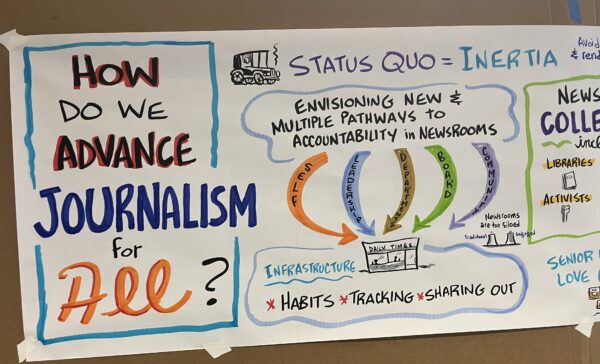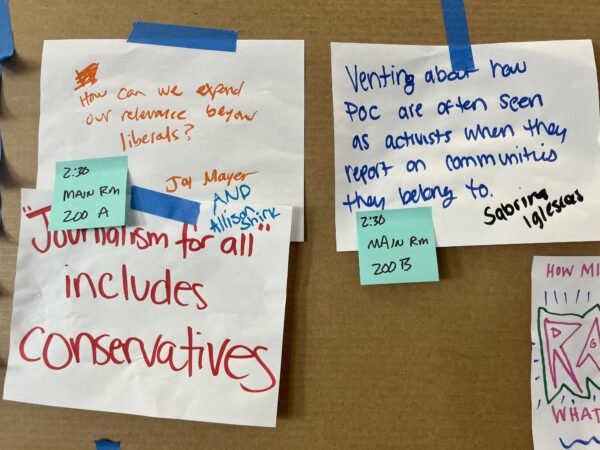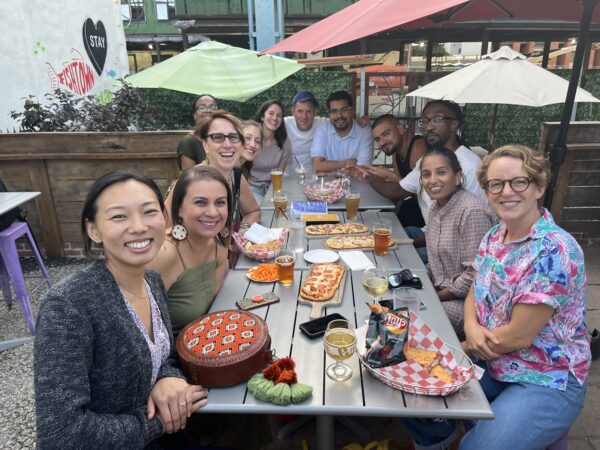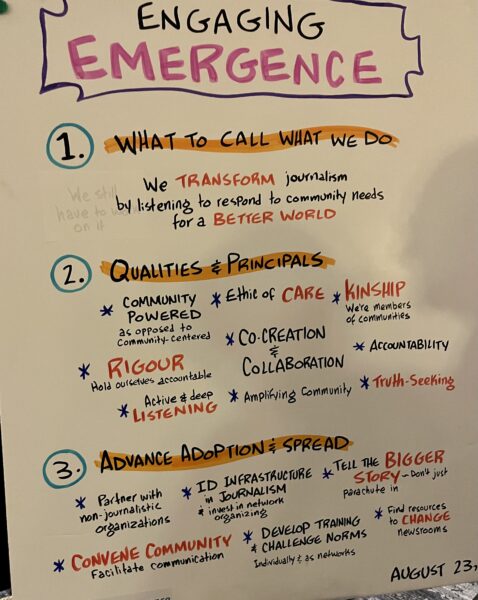 The Listening Post Collective co-sponsored the recent Engaging Emergence civic media conference in Philadelphia. Seven LPC partners and a host of collaborators joined more than a 100 other journalism practitioners, innovators, and educators dedicated to centering community in media. Goals for the meetup including hearing from people about what kinds of civic media innovations have momentum, how best to support and collaborate on these efforts, and on a bigger scale, how do we imagine a journalism space that’s truly equitable.
The Listening Post Collective co-sponsored the recent Engaging Emergence civic media conference in Philadelphia. Seven LPC partners and a host of collaborators joined more than a 100 other journalism practitioners, innovators, and educators dedicated to centering community in media. Goals for the meetup including hearing from people about what kinds of civic media innovations have momentum, how best to support and collaborate on these efforts, and on a bigger scale, how do we imagine a journalism space that’s truly equitable.
The gathering was participant directed, the people who came dictated the conversations and work being done, and they focused on questions like how to integrate media literacy into schools, how to become more self aware of the trauma our journalism has caused some communities, how to expand the impact of our work to more conservative audiences and communities, and how to change the dynamic of BIPOC journalists being perceived as activists by their own outlets.
and they focused on questions like how to integrate media literacy into schools, how to become more self aware of the trauma our journalism has caused some communities, how to expand the impact of our work to more conservative audiences and communities, and how to change the dynamic of BIPOC journalists being perceived as activists by their own outlets.
LPC partners Lede New Orleans, Conecta Arizona, Frontline Observer, The Space, uSpark Valley, Documented and El Tímpano, and many longtime collaborators and Civic Media Playbook users were in attendance. Their work as BIPOC and immigrant led media startups is seminal to the push for a more civic minded journalism space, and it was amazing to have them all in one room together to conjure the media space that they to want to work and thrive in.

Ultimately the gathering sought to define the work of civic media, it’s unique set of principles, and the ways in which it can expand beyond the “emergence” stage and into the mainstream journalism universe.
 The conference ended with a presentation and discussion, partnering with the adjacent Online News Association conference, meant to bring in more legacy media perspectives on whether they see a path for more community centered approaches to reporting in their newsrooms. Not surprisingly an ongoing split emerged between the growing number of media organizations that are finding ways to do community centered journalism, and more mainstream newsrooms that see a shift away from traditional methodologies around “objectivity” in favor of communities playing a bigger role in what gets covered and how as problematic. The debate continues, but the growth in new ways of thinking about how we do journalism, and how to do it with communities instead of to them is encouraging.
The conference ended with a presentation and discussion, partnering with the adjacent Online News Association conference, meant to bring in more legacy media perspectives on whether they see a path for more community centered approaches to reporting in their newsrooms. Not surprisingly an ongoing split emerged between the growing number of media organizations that are finding ways to do community centered journalism, and more mainstream newsrooms that see a shift away from traditional methodologies around “objectivity” in favor of communities playing a bigger role in what gets covered and how as problematic. The debate continues, but the growth in new ways of thinking about how we do journalism, and how to do it with communities instead of to them is encouraging.
